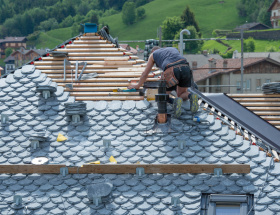We often take electricity for granted, not realizing the crucial role that electricians play in our daily lives. These professionals are responsible for installing, maintaining, and repairing electrical systems in our homes, offices, and other buildings. Without their expertise, we would be left in the dark, literally and figuratively. So, what exactly is the role of electricians, and why are they so essential? In this article, we’ll explore the importance of electrical professionals, ensuring safety and compliance, installation and wiring, and the various specializations within the field.

Ensuring Safety and Compliance
One of the most critical aspects of an electrician’s job is ensuring the safety of those using electrical systems. This involves adhering to strict safety regulations and codes, which are designed to minimize the risk of electrical fires, electrocution, and other hazards. These professionals must be well-versed in the National Electrical Code (NEC) and any local or state codes that may apply. The role of electricians also includes regular inspections of existing systems to ensure they remain in compliance with these regulations.
Some key aspects of ensuring safety and compliance include:
Proper grounding
This is essential for preventing electrical shocks and protecting sensitive electronic equipment. Electricians must ensure that all electrical systems are grounded according to code requirements.
Circuit protection
Overloaded circuits can lead to fires and other hazards, so electricians must install appropriate circuit breakers or fuses to prevent this from happening.
GFCI (Ground Fault Circuit Interrupter) protection
This involves installing special outlets in areas where water is present, such as bathrooms and kitchens, to reduce the risk of electrocution.
AFCI (Arc Fault Circuit Interrupter) protection
This type of protection is designed to detect any dangerous electrical arcs and shut down the affected circuit before it can cause a fire.
Installation and Wiring
Another essential aspect of the role of electricians is the installation and wiring of new electrical systems. This can be a complex process, involving multiple stages and various types of equipment. Electricians must ensure that the system is designed and installed according to the specific needs of the building and its occupants, as well as in compliance with all relevant codes and regulations.
Some key aspects of installation and wiring include:
Designing the electrical system:
This involves determining the layout of the system, including the location of outlets, switches, and lighting fixtures, as well as the size and type of wiring needed to accommodate the expected electrical load.
Installing electrical panels:
These panels are responsible for distributing power throughout the building, and electricians must ensure they are correctly sized and installed to handle the building’s electrical needs.
Running wiring:
Electricians must install wiring throughout the building, connecting it to the electrical panel and the various outlets, switches, and fixtures. This requires knowledge of the appropriate type and size of wire, as well as proper installation techniques to ensure safety and compliance.
Installing fixtures and devices:
Once the wiring is in place, electricians must install the various fixtures and devices that make up the electrical system, such as light fixtures, outlets, switches, and appliances.

Specializations within the Field
While all electricians must be skilled in the basics of electrical work, many choose to specialize in specific areas or industries. This allows them to develop a deeper understanding of the unique requirements and challenges associated with these specialized fields. Some common specializations within the field of electrical work include:
Residential electricians:
These professionals focus on installing, maintaining, and repairing electrical systems in homes and other residential buildings. They may work on everything from wiring new construction projects to troubleshooting and repairing existing systems.
Commercial electricians:
These electricians specialize in working on electrical systems in commercial buildings, such as offices, retail spaces, and hotels. Their work may involve installing more complex systems, such as lighting controls or energy management systems, and ensuring compliance with commercial building codes.
Industrial electricians:
These professionals work in industrial settings, such as factories and power plants, where they may be responsible for installing, maintaining, and repairing large-scale electrical systems and machinery.
Maintenance electricians:
These electricians focus on the ongoing maintenance and repair of existing electrical systems. They may work in various settings, from residential homes to large commercial or industrial facilities.
Green energy electricians:
These professionals specialize in the installation and maintenance of renewable energy systems, such as solar panels or wind turbines. They may also work on energy-efficient lighting and other green technologies.
Conclusion
The role of electricians is undeniably essential in our modern world, where electricity plays a crucial part in our daily lives. These professionals are responsible for ensuring the safety and compliance of electrical systems, as well as designing, installing, and maintaining the complex wiring and devices that make up these systems. With the growing demand for green energy solutions and the increasing complexity of electrical systems, the importance of skilled electrical professionals will only continue to grow. So, the next time you flip a switch or plug in a device, take a moment to appreciate the hard work and expertise of the electricians who make it all possible.









